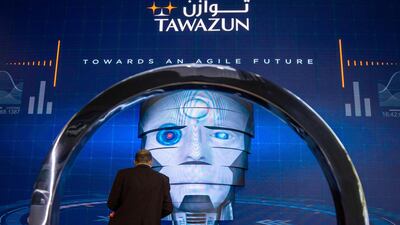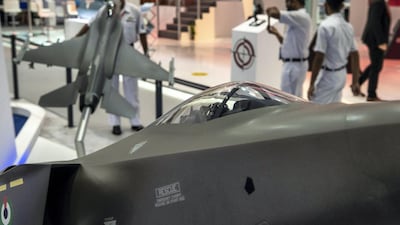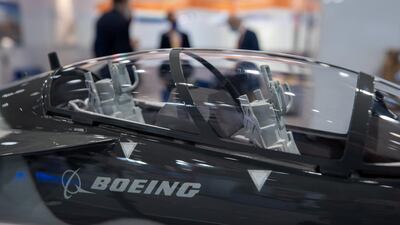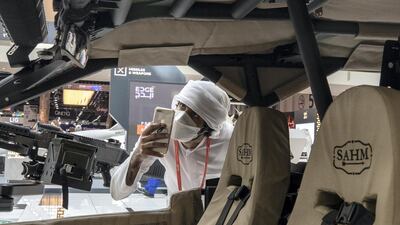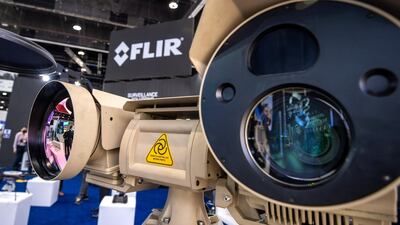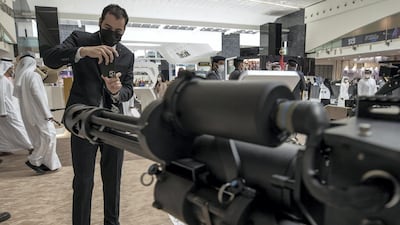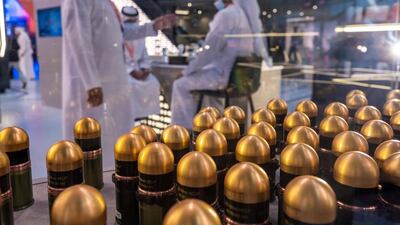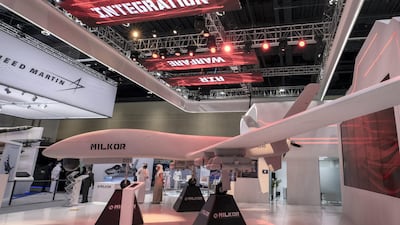If there is one word to describe this year's International Defence Exhibition and Conference in Abu Dhabi, it is "local".
As the last day of Idex wraps up, the UAE Armed Forces signed 53 out of 86 deals with local companies, worth $2.9 billion out of a total $5.7bn.
Alan Davis has been coming to the Middle East’s biggest defence conference for two decades, but this is the first time the Raytheon executive was approached by local students looking for internships.
With the UAE's push to develop and manufacture defence equipment within its own borders, interest from students in engineering and maths will be critical, Mr Davis, chief executive of Raytheon Emirates, told The National.
The US giant is one of only a few “landed” defence companies in the UAE – a wholly-owned, Abu Dhabi-headquartered business for Raytheon that was established in 2018.
Mr Alan said Raytheon Emirates is in the early stages of developing partnerships with Abu Dhabi defence conglomerate Edge to identify capabilities and technologies to develop together.
A front-runner for local deployment is a high-energy laser weapon system known as HELWS2, or H2, that can detect the cheap, off-the-shelf drones favoured by non-state actors from less than five kilometres away, and bring them down. The system can protect critical infrastructure like airports, oilfields and power grids.
Sweden’s Saab is another landed company in the UAE.
It announced its first product fully developed and made in Abu Dhabi at Idex: a rugged infrared camera that Anna-Karin Rosen, managing director of Saab Ltd, told The National was the "first of many" products in the pipeline for the UAE company.
Milkor combined two Idex trends: local and autonomous.
The South African defence company unveiled its UAE-designed unmanned combat aerial vehicle and said it would be opening an office in the capital.
The streamlined aircraft was on prominent display on the Milkor stand, fitted with six guided weapons on the wings.
Autonomous systems play an important role in the UAE's defence strategy because they can be used as a proxy for soldiers.
"New levels of autonomy [are] offering greater opportunities to support more complex missions," said Faisal Al Bannai, chief executive and managing director of Edge.
Although autonomous systems are now mainstream in defence systems, a shift to green technology is a newer development.
On display at Abu Dhabi-based military vehicle maker Nimr’s stand is a hybrid electric armoured vehicle, developed with Singapore’s ST Engineering.
Although increased fuel efficiency is a plus, the added safety is why Nimr believes this is where the market is headed. The hybrid engine is much quieter and has a lower heat signature – making it less detectable by infrared cameras and safer in a combat environment.
Nimr will be the first manufacturer in the region to integrate hybrid electric systems into armoured vehicles, Abri du Plessis, the company’s chief executive, said.
